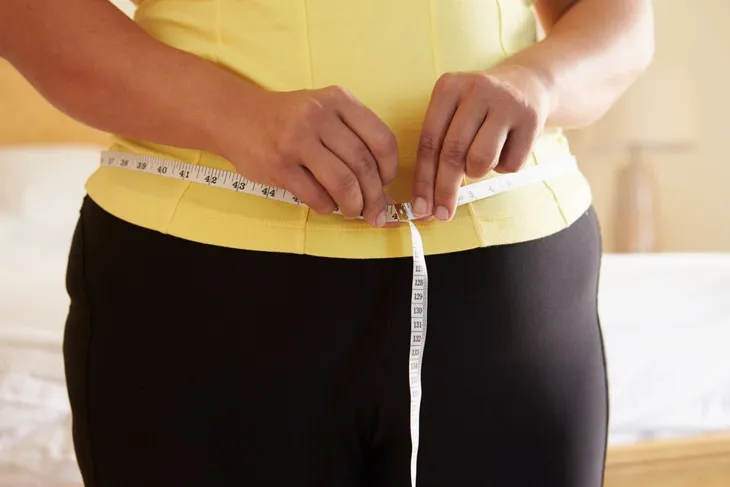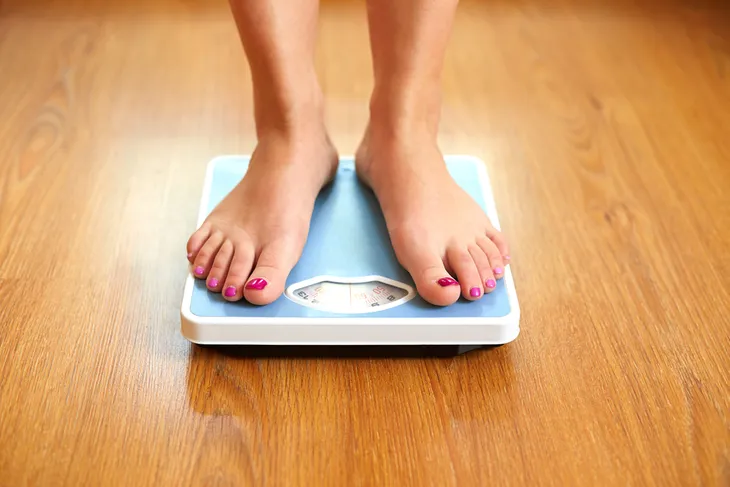- Many women gain weight in midlife due to hormonal changes and lifestyle factors.
- Menopausal weight gain can have serious implications for your health such as increasing your risk for disease and illness.
- While losing weight is not easy, it’s not impossible.
- It’s important to work with your doctor, especially before making drastic dietary and exercise changes to your lifestyle.
Have you hit the 40-year milestone and suddenly notice all the other changes (physically and mentally) that come with it? You’re not alone. A lot of women gain weight as they grow older, especially around their midsection. But why is that? And can you stop it from happening?
Today we’re going to take a closer look at weight gain in women and why it typically happens in midlife. We’ll also take a look at a few steps you can take to shed those excess pounds. Let’s get into it!
Why Do Women Gain Fat in Midlife?
So why do many women see a spike in weight gain after 40? The biggest culprit is hormones. Alyssa Dweck, MD, gynecologist and assistant clinical professor at the Mount Sinai School of Medicine tells Healthline, “As you approach menopause, levels of estrogen, progesterone, and testosterone fluctuate.” When your hormones fluctuate, a variety of changes can develop such as decreased lean muscle mass and bone density, mood changes, decreased libido, and weight gain.
We can’t blame hormones entirely. Lifestyle habits, age, and genetic factors also play a role in weight gain which we’ll dive into a bit deeper next.
 Monkey Business Images / Shutterstock
Monkey Business Images / ShutterstockDo Genetics Play a Role?
The short answer is yes, genetics may play a role in middle-aged weight gain. This means if your parents or other close relatives carry extra weight around their waistline, you may be more at risk to do the same, explains the Mayo Clinic.
It’s important to remember that a genetic predisposition doesn’t mean you’re 100-percent doomed for weight gain at midlife, it simply means your genetics may increase your risk. Other factors like lack of exercise, unhealthy eating habits, or not getting adequate sleep also play a role in weight gain. These also happen to be factors within your control.
Your Metabolism Slows Down
Unfortunately, our resting metabolic rate naturally decreases as we age and your hormones play a role in metabolism too. Healthline explains that lower levels of estrogen can also contribute to a slow metabolism.
If you don’t know, your estrogen levels slowly decline as you get older and approach menopause. This is why a combination of menopause and an already naturally declining metabolism can accelerate weight gain after 40. Healthline says the best way to keep your metabolism running efficiently is to stay active, drink plenty of water, and eat your fiber!
You May Lose Lean Muscle Mass
Another reason you may notice weight gain in midlife is because you’re losing lean muscle mass. After you turn 40 you’ll start to lose muscle mass, “the main calorie-burning engine in your body,” Healthline reports.
The source says you may lose about 1-percent of muscle mass per year. Just like your declining metabolism, muscle loss is also linked to a change in hormones, specifically decreasing estrogen and testosterone levels.
When you lose lean muscle mass and don’t have an efficient metabolism, your body won’t burn calories as you used to when you were young, thus leading to weight gain. Healthline says you can help prevent this by focusing on strength training a few times per week.
Your Appetite May Change
Another reason you might be gaining weight is due to appetite changes. Once again, due to hormone changes, your body may not be able to process when you’re full and hungry efficiently. Leptin (a hormone that tells you when you’re full) and ghrelin (a hormone that tells you when you’re hungry) can fluctuate.
Healthline explains the receptors for these hormones don’t work as efficiently when you get older. In some cases, your body may become resistant to them causing you to overeat and in turn, gain weight. The source says the best way to combat this problem is to keep a food diary so you can pinpoint your poor eating habits and ensure you’re getting all the nutrients your body needs to thrive.
Stress May Play a Role
Everyone experiences stress from time to time but middle-aged women may carry more stress than others. Many women wear multiple hats from managing their careers to parenting and more — it can be a lot to handle at times. Unfortunately, chronic stress may lead to weight gain.
The reason stress may cause weight gain is due to the stress hormone known as cortisol. When your body produces high levels of cortisol, your blood sugar levels may drop causing you to overeat, especially sugar explains Healthline. The best way to combat this problem is to manage your stress.
Lack of Sleep May Lead To Weight Gain
Do you have trouble sleeping? You’re not alone. Many middle-aged women have difficulty sleeping. “Two of the biggest sleep disruptors at this age are hot flashes and night sweats,” says Healthline.
Unfortunately, lack of sleep may lead to weight gain. This is because when you’re sleep-deprived, you have less leptin, explains WebMD. As we mentioned earlier, leptin is the hormone that tells your body that you’re full and to stop eating. So, when you have less of it, you’re more likely to overeat.
The source also says your metabolism runs slower when you’re sleep-deprived. You may also find you have less energy to exercise which can all play a role in weight gain.
Weight Gain Risks
Now that we have a better understanding of why women gain weight in midlife, it’s important to discuss the risks of weight gain. The Mayo Clinic points out that menopausal weight gain can “have serious implications for your health.”
For starters, excess weight (especially around the midsection) may increase your risk of heart disease, blood vessel disease, and type 2 diabetes. You may also experience breathing problems and be at risk for certain types of cancer such as breast, endometrial, and colon cancers, says the source.
How to Get Rid of Weight Gain
Since excess weight can put your health at risk, it’s important to do everything you can to stay healthy. First, you should book an appointment with your doctor and voice your concerns, as well as explain your weight gain struggles.
Your doctor can address the weight gain culprits and provide advice on how you can get rid of it. Lifestyle adjustments may be necessary such as changing your diet and adding more exercise into your everyday routine. Let’s take a closer look at what you can do next.
Exercise Regularly
It’s no secret that exercise is good for you but exercising regularly can also help you shed excess pounds and maintain a healthy weight, says the Mayo Clinic. The source also says, “as you gain muscle, your body burns calories more efficiently.”
According to the Centers for Disease Control and Prevention (CDC), adults should aim for at least 150-minutes of activity per week. While it may sound like a lot, you can break it up into 30-minute workouts, 5-days a week. The source says adults should engage in a combination of aerobic activity such as brisk walking, jogging, or biking, as well as muscle strengthening exercises.
Watch What You Eat
Your diet is just as important (if not more important) than getting regular exercise. The Mayo Clinic says to maintain your weight or to shed a few pounds, you might need to consume about 200 fewer calories per day. By eating and drinking fewer calories than you burn, you’ll be in a calorie deficit and in turn, lose weight.
While a calorie deficit is a great way to shed pounds, it’s important to work with your doctor and a dietician to ensure you’re getting enough nutrients. To ensure you’re fueling your body with enough nutrients you may want to keep a food diary. Focus on choosing whole foods like fresh fruits and vegetables, whole grains, adequate fiber, and lean protein, and stay away from processed foods.
Seek Support
Losing weight is not easy, but not impossible. To help you on your journey lean on a support system. Surrounding yourself with friends or family who support your weight loss efforts can help you achieve your goals. Better yet, perhaps you can set these goals together and hold each other accountable.
The key to losing weight is recognizing your areas of weakness (such as poor diet or sedentary habits) and setting goals to make long-term changes. Over time, your new healthier habits will feel natural and you’ll reap the benefits!














